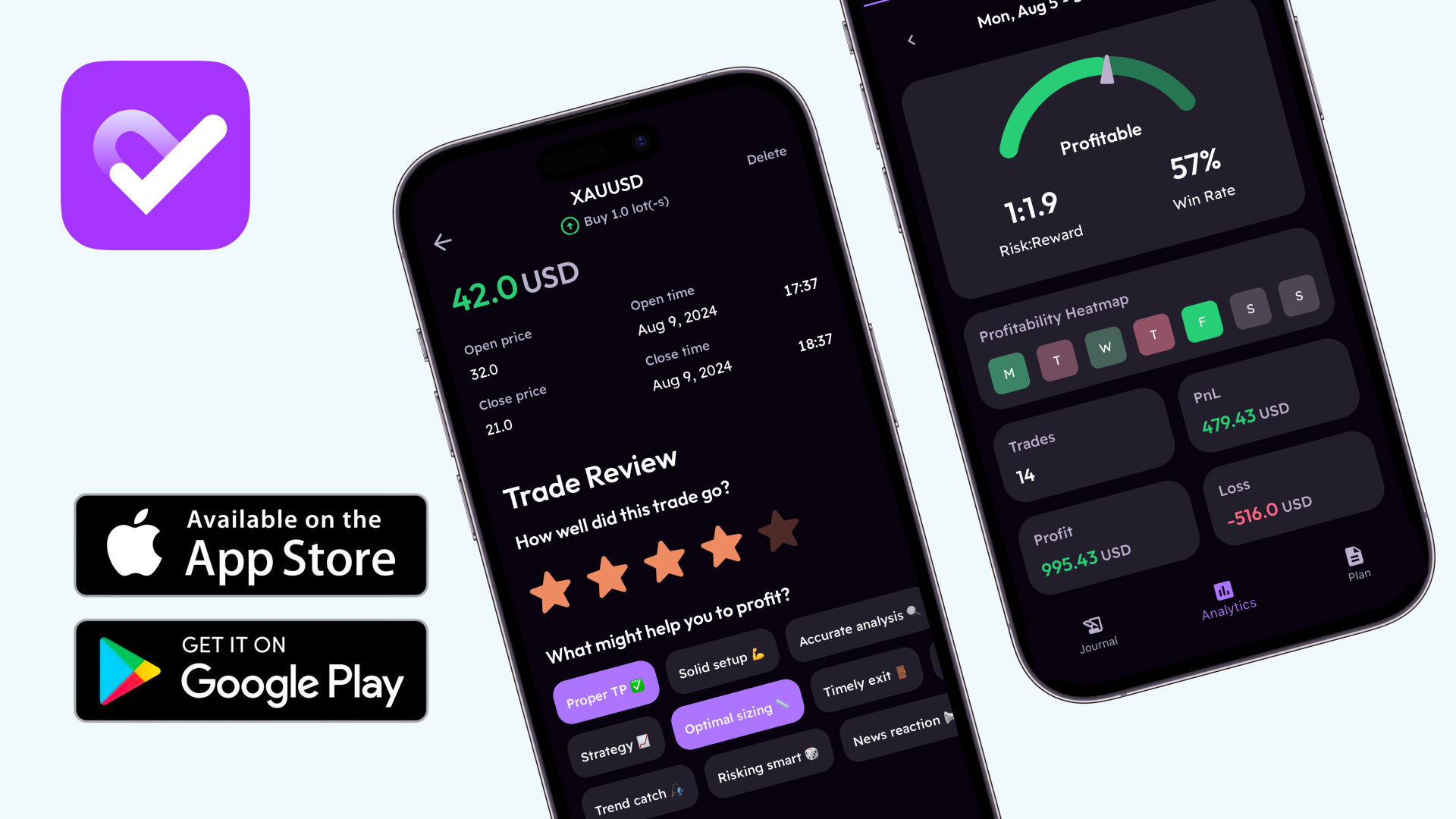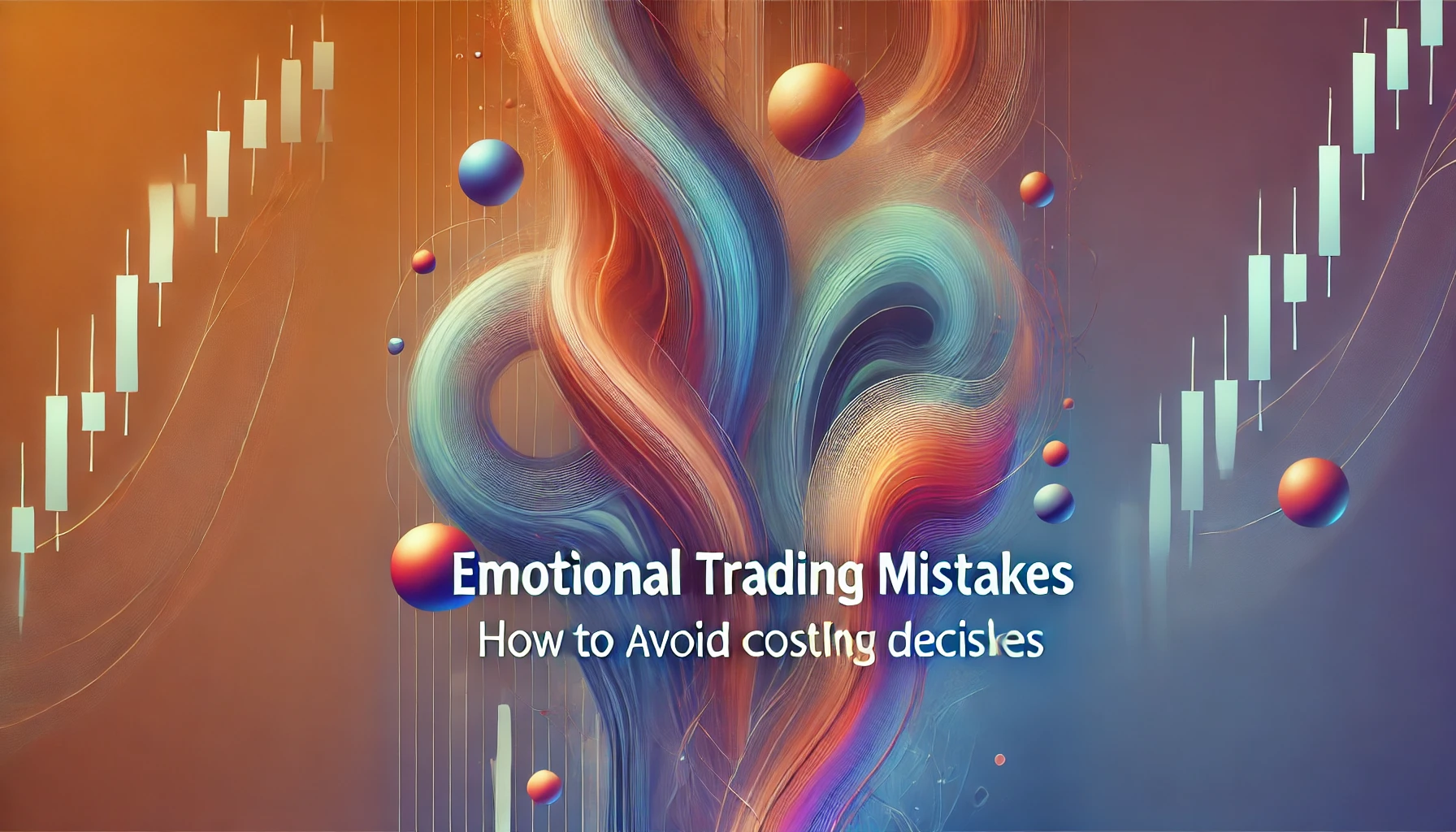Understanding Emotional Trading
Emotions play a crucial role in trading, but letting them dictate decisions can be a costly mistake. Traders often fall into psychological traps, leading to impulsive actions that harm their portfolios. In this article, we’ll explore common emotional trading mistakes and provide strategies to prevent them.
1. Fear of Missing Out (FOMO)
One of the biggest emotional trading mistakes is FOMO. When traders see an asset rapidly rising, they feel the urge to jump in, fearing they’ll miss potential profits. However, buying at the peak can lead to significant losses if the market reverses. How to Avoid It:
- Stick to a trading plan based on analysis rather than hype.
- Avoid rushed decisions influenced by social media trends.
- Set entry and exit strategies before placing trades.
Psychological Impact of FOMO
FOMO triggers anxiety and hasty decisions, leading traders to act against their better judgment. Understanding these triggers can help traders maintain discipline and avoid costly mistakes.
Case Study: Bitcoin’s 2021 Bull Run
During Bitcoin’s rapid rise in 2021, many new traders jumped in at peak prices due to FOMO. When the market corrected, they faced significant losses. This highlights the importance of disciplined entry strategies.
Expert Insights: What Trading Professionals Say About FOMO and Market Timing
Dr. Brett Steenbarger, trading psychologist and author of "The Psychology of Trading," explains:
"FOMO is fundamentally about social comparison. Traders see others making money and feel they're falling behind. This activates the same brain regions as physical pain, pushing people to make impulsive decisions just to relieve that discomfort."
Mark Douglas, renowned trading coach and author of "Trading in the Zone," noted:
"The biggest obstacle to successful trading isn't the markets—it's the trader's own mind. When you're caught in FOMO, you're not trading the markets; you're trading your emotional need for validation."
2. Revenge Trading
After losing trades, frustration can push traders to make aggressive moves to recover losses—often without proper analysis. This behavior, known as revenge trading, can quickly drain a trading account. How to Avoid It:
- Accept losses as part of trading and stay disciplined.
- Take a break after a loss to regain emotional control.
- Review what went wrong and adjust your strategy accordingly.
The Cycle of Revenge Trading
Many traders get stuck in a cycle where losses cause frustration, leading to reckless trades that result in even bigger losses. Breaking this cycle requires patience and a structured trading plan.
Real-Life Example: A Forex Trader’s Revenge Spiral
A forex trader who lost a significant amount on a single bad trade tried to recover by making increasingly risky trades. Instead of regaining his losses, he wiped out his account in days. This highlights the dangers of revenge trading.
Expert Insights: What Trading Professionals Say About Revenge Trading
Jack Schwager, author of the "Market Wizards" series, shares:
"The most common way traders destroy themselves isn't through lack of knowledge but through inability to accept losses. Revenge trading is a manifestation of ego over logic, and the market is remarkably efficient at punishing this behavior."
Dr. Denise Shull, performance coach and author of "Market Mind Games," offers:
"Revenge trading is often misunderstood as anger, but it's actually about shame. Traders feel they've failed and are trying to prove their worth. Recognizing this emotional driver is the first step to overcoming it."
3. Overconfidence After Winning Streaks
Success in trading can sometimes lead to excessive confidence, making traders believe they can’t lose. This often results in bigger risks, over-leveraging, or ignoring stop-loss orders. How to Avoid It:
- Stay humble and objective after wins.
- Continue following your risk management rules.
- Avoid increasing trade sizes without a solid reason.
Why Overconfidence is Dangerous
Traders who become too confident often neglect risk management, assuming their past success guarantees future profits. This leads to poor decision-making and larger potential losses.
Historical Example: The 2008 Financial Crisis
Many traders and investors became overly confident in the housing market, leading to excessive risk-taking. The resulting crash wiped out billions and serves as a cautionary tale against overconfidence.
Expert Insights: What Trading Professionals Say About Overconfidence
Paul Tudor Jones, legendary hedge fund manager, warns:
"The most important rule in trading is to play great defense, not great offense. Overconfidence makes you forget this essential truth."
Behavioral economist Dr. Daniel Crosby points out:
"Success in trading creates a dopamine release similar to addictive substances. This chemical reward can lead to risk-seeking behavior and the dangerous belief that skill, not luck, was responsible for past wins."
4. Holding on to Losing Trades (Hope Trading)
Many traders struggle to accept losses, which causes them to hold onto losing positions for too long, hoping the market will reverse. This often results in larger losses. How to Avoid It:
- Use stop-loss orders to limit potential losses.
- Accept that not all trades will be successful.
- Focus on likelihood and long-term success.
Recognizing Hope Trading
A clear sign of hope trading is ignoring technical signals that indicate a trade should be closed. Emotional attachment to a trade can cloud judgment, making it crucial to set objective exit strategies.
Example: Retail Traders in Meme Stocks
In 2021, many retail traders held onto meme stocks, hoping they would continue rising. Some saw massive losses when prices collapsed because they refused to exit losing positions in time.
Expert Insights: What Trading Professionals Say About Hope Trading
Linda Raschke, professional trader with over 40 years of experience, advises:
"Hope is not a strategy. Professional traders don't hope; they observe and react to what the market is actually doing, not what they wish it would do."
Dr. Ari Kiev, psychiatrist who worked with top traders, stated:
"Holding onto losing positions reflects a deeper psychological need to be right. Traders must learn to separate their self-worth from their trading results."
5. Panic Selling
Market instability can trigger panic selling, where traders exit positions due to fear rather than rational analysis. This often leads to selling at the worst possible time. How to Avoid It:
- Stay informed about market trends and news.
- Develop confidence in your trading strategy.
- Avoid emotional reactions by following pre-set exit rules.
Managing Fear in Trading
Fear-driven decisions can cause unnecessary losses. Practicing risk management techniques and using trading journals can help traders build confidence and reduce impulsive actions.
Example: The 2020 Stock Market Crash
During the COVID-19 pandemic, many traders panic-sold stocks at record lows, only to see markets recover quickly. Those who remained patient avoided significant losses.
Expert Insights: What Trading Professionals Say About Panic Selling
Ray Dalio, founder of Bridgewater Associates, reflects:
"The biggest mistake investors make is to believe that what happened in the recent past is likely to persist. They assume that something that was a good investment in the recent past is still a good investment. Typically, high past returns simply imply that an asset has become more expensive and is a poorer, not better, investment."
Dr. Andrew Lo, professor of finance at MIT, explains:
"Financial panic is contagious. Our brains are wired to respond to perceived threats with fight-or-flight responses. In trading, this manifests as panic selling, which is almost always counterproductive."
Checklists & Actionable Tips to Manage Emotions in Trading
To maintain discipline and avoid emotional trading mistakes, use the following checklist before entering or exiting a trade:
Pre-Trade Checklist:
- ✅ Have I analyzed the market trends and indicators?
- ✅ Does this trade align with my overall trading plan?
- ✅ Have I set a stop-loss and take-profit level?
- ✅ Am I making this decision based on logic rather than emotion?
In-Trade Checklist:
- ✅ Am I sticking to my original plan, or am I reacting emotionally?
- ✅ Have I adjusted my stop-loss or take-profit based on market movement?
- ✅ Is there new information that justifies changing my strategy?
Post-Trade Checklist:
- ✅ Did I follow my plan, or did emotions influence my decision?
- ✅ What can I learn from this trade?
- ✅ Am I letting a past loss or win influence my next move?
By following this structured approach, traders can minimize emotional reactions and make more rational decisions in financial markets.
How Plancana Can Help You Overcome Emotional Trading Mistakes
 At Plancana, we understand the impact of emotions on trading. Our AI-powered trading journal helps traders track their decisions, analyze past trades, and build disciplined habits. With automatic trade syncing and insights into emotional patterns, you can stay on track and avoid costly mistakes.
At Plancana, we understand the impact of emotions on trading. Our AI-powered trading journal helps traders track their decisions, analyze past trades, and build disciplined habits. With automatic trade syncing and insights into emotional patterns, you can stay on track and avoid costly mistakes.
Features of Plancana AI Trading Journal:
- Automatic Trade Syncing – Keep track of your trades effortlessly.
- Emotional Analysis – Identify patterns in your emotional trading behavior.
- Performance Reports – Gain insights into your trading decisions over time.
- Goal Tracking – Stay accountable to your long-term strategy.
Final Thoughts
Emotional trading mistakes are common but avoidable. By recognizing the risks of FOMO, revenge trading, overconfidence, hope trading, and panic selling, traders can make more rational decisions. Using tools like Plancana AI Trading Journal can provide the discipline needed to navigate financial markets successfully.
Take Action
Start by creating a structured trading plan, using stop-loss orders, and maintaining a disciplined approach. Remember, trading is a marathon, not a sprint. By staying focused and disciplined, you can minimize emotional trading mistakes and achieve long-term success.

Remember, emotional trading mistakes are common but avoidable. By recognizing the risks of FOMO, revenge trading, overconfidence, hope trading, and panic selling, traders can make more rational decisions. Using tools like Plancana AI Trading Journal can provide the discipline needed to navigate financial markets successfully.
